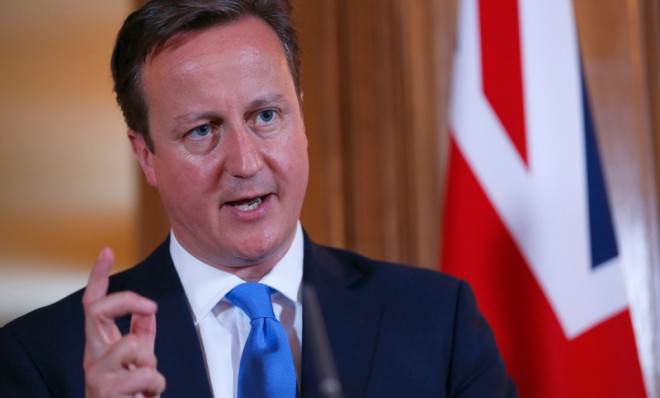Why Britain's new porn ban is a dumb idea
Prime Minster David Cameron kicks off a quixotic crusade against pornography

A free daily email with the biggest news stories of the day – and the best features from TheWeek.com
You are now subscribed
Your newsletter sign-up was successful
British Prime Minister David Cameron is banning porn.
Specifically, he is asking internet service providers to block porn by default, making consumers un-check a box if they want to see some skin. And the providers have agreed to go along.
Cameron is also moving to ban "extreme pornography," which includes scenes of simulated rape, and to create a blacklist of "abhorrent" terms that could be used by pedophiles to search for child pornography.
The Week
Escape your echo chamber. Get the facts behind the news, plus analysis from multiple perspectives.

Sign up for The Week's Free Newsletters
From our morning news briefing to a weekly Good News Newsletter, get the best of The Week delivered directly to your inbox.
From our morning news briefing to a weekly Good News Newsletter, get the best of The Week delivered directly to your inbox.
The porn block will extend to all devices — including tablets and smartphones — that get their service from the same provider. The changes should be put in place by the end of this year, reports The Guardian.
"I'm not making this speech because I want to moralize or scare-monger, but because I feel profoundly as a politician, and as a father, that the time for action has come," Cameron said on Monday. "This is, quite simply, about how we protect our children and their innocence."
Not everyone is on board with Cameron's crusade against pornography.
"Ultimately, the question here will be if the porn crackdown will ultimately result in less child abuse and better treatment of women," writes Alexander Abad-Santos at The Atlantic Wire. "If you look at countries that ban porn (and ones that don't), you'll notice that at best, there's no clear relationship between banning porn and that country's treatment of women and children."
A free daily email with the biggest news stories of the day – and the best features from TheWeek.com
Censorship is also obviously an issue. And while it's tricky for humans to decide what constitutes pornography, computers have an even harder job separating pornography from art or scientific depictions of nudity.
"Despite the best efforts of programmers everywhere, you can't just tell a computer 'block any page with an image or video of a female nipple or male or female genitalia' (a rule which, itself, would be hopelessly over-strict; farewell Titian! So long, Leonardo!)," writes the New Statesman's Alex Hern. "Blocking anatomical terms like 'vagina' or 'anus', for instance, frequently leads to sites discussing sexual health or feminist topics being caught up."
Then there is the question of whether or not the ban will actually be effective, a valid concern considering that teenagers have been circumventing obstacles to pornography ever since Playboy was first published in the 1950s.
"Any default-on system needs to be simple enough for a stupid adult to navigate, and, if it is, any web-savvy kid should find their way around it in no time," writes The Guardian's Tom Meltzer. "To work, the filters would need to prevent users from asking search engines 'How do I turn off these porn filters?' And then the question 'How do I turn off the filters for questions about turning off filters?' And so on, for ever."
And what about the ban on "abhorrent" terms? While few would argue that fighting child pornography isn't a noble cause, trying to censor it through Google might not be the most effective course of action.
"Pedophiles operate through password-protected sites and peer-to-peer networks," notes The Telegraph's Mic Wright. "Only the most feckless use mainstream search engines to facilitate their crimes."
If such bans are ineffective, why enact them? Is this all just political posturing from Cameron?
"He may be trying to appease the highly influential right-wing British newspaper, The Daily Mail, which has been running a campaign against online porn for months," writes Leo Mirani at Quartz.
Those looking for a wholesome alternative to internet pornography can compare Kate Upton with Cameron Diaz in The Daily Mail's "battle of the bikini bodies," running, at the time of publication, on the site's front page.
Keith Wagstaff is a staff writer at TheWeek.com covering politics and current events. He has previously written for such publications as TIME, Details, VICE, and the Village Voice.